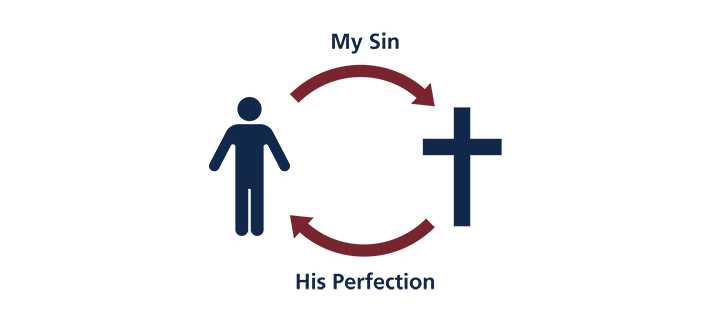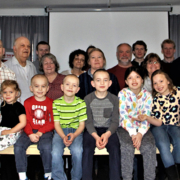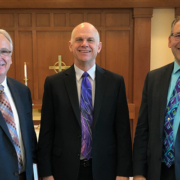There, but for the grace of God, go I
At one time we all lived among [other sinners]. We tried to satisfy what our sinful nature wanted to do. We followed its longings and thoughts. God was angry with us and everyone else because of the kind of people we were. But God loves us deeply. He is full of mercy. So he gave us new life because of what Christ has done. He gave us life even when we were dead in sin. God’s grace has saved you. Ephesians 2:3-5 (NiRV 1998)
I’m surprised by how frequently I encounter the idea that there are “good” people and “bad” people in the world. To be sure, one can look around and immediately find examples of people whose outward lives conform to God-pleasing (or at least law-abiding) behavior. Other people make no effort to behave in a way that pleases God, even taking pride in their law breaking. Entertainment is full of law enforcement personnel (the good guys) trying to track down and lock up the monsters (the bad guys). We even hear some Christians voicing the question: “Why do bad things happen to good people?”
This kind of thinking can come too easily to anyone, even those who share Jesus with people behind bars. If we are not careful, Satan can get us to believe the lie that we are somehow inherently better or more valuable to God than the people we serve. Paul doesn’t let us go there. He reminds us clearly that every single one of us was, by nature, dead in sin and deserved God’s anger. But God’s grace and love made faith come to life within us. We trust that Christ obliterated all our sins, whether great or small in the eyes of the world. God now sees anyone who trusts in Jesus’ life and death in his or her place as perfectly fit for life with him forever. The grandma who never missed a Sunday in church for decades AND the man on death row, because of their trust in Jesus, wear the robes of Jesus’ righteousness. Both of them are not just good, but perfect people.
Tradition, though it cannot be proven, attributes our devotion’s title to an English clergyman as he watched a line of condemned men being led to the gallows. When we realize how “unfair” God is, namely punishing his Son for our sins instead of us, we are better able to be compassionate and seek the welfare of others. We had an amazing reminder of that recently. Make sure you catch the story in this issue of how God’s love to some inmates in South Dakota moved them to extend that love to others. Those who are forgiven much, love much.
Dave Hochmuth, WELS Prison Ministry Administrator
SPECIAL MINISTRIES
Learn about the ministry work of WELS Special Ministries.
SUPPORT SPECIAL MINISTRIES
Support the ministry work of WELS Special Ministries.








